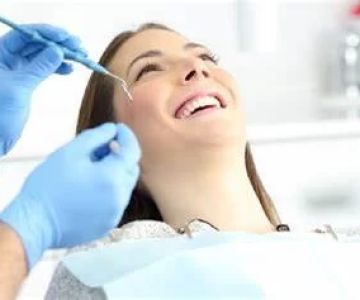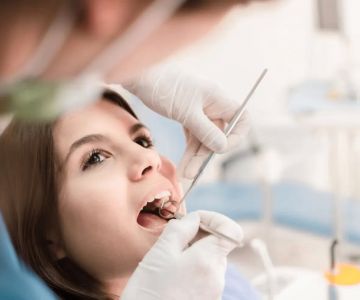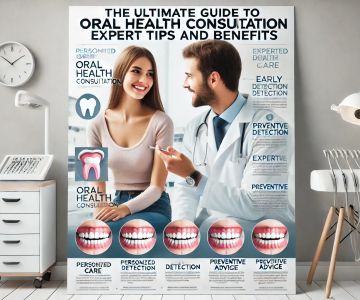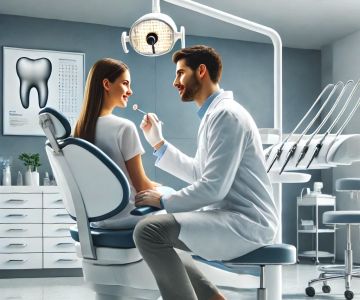Can a Dentist Check for Oral Cancer?
Oral cancer is a serious health condition that can affect anyone, but it is often undiagnosed until it reaches an advanced stage. Many people are unaware that their dentist can play a crucial role in detecting oral cancer in its early stages, often before symptoms become obvious. This article will guide you through how a dentist checks for oral cancer, why regular dental visits are important, and how early detection can save lives.
1. Understanding Oral Cancer and Its Importance
Oral cancer encompasses cancers of the mouth, tongue, lips, gums, and the roof and floor of the mouth. It is a type of head and neck cancer that can be difficult to detect until it has spread. The American Cancer Society estimates that over 50,000 people are diagnosed with oral or oropharyngeal cancer each year in the United States. Unfortunately, when diagnosed early, the survival rates improve significantly. This is where a dentist's role becomes critical.
2. What Does a Dentist Do During an Oral Cancer Screening?
During your routine dental visit, your dentist will perform a simple yet thorough examination to check for signs of oral cancer. This screening typically involves inspecting the inside of the mouth, lips, and throat, feeling for unusual lumps or swellings, and checking for any lesions or sores that do not heal. Dentists are trained to recognize early signs of oral cancer, including:
- Unexplained lumps or thickening in the mouth or neck
- Red or white patches inside the mouth
- Bleeding sores that don’t heal
- Pain or difficulty swallowing, chewing, or speaking
Any suspicious areas will be noted, and if necessary, further tests like a biopsy or referral to a specialist will be recommended for confirmation.
3. Early Detection and Its Life-Saving Importance
Early detection of oral cancer significantly increases the chance of successful treatment. According to research, the five-year survival rate for oral cancer is approximately 84% when detected early, compared to only 38% when diagnosed at a later stage. Regular check-ups with your dentist are essential because they can detect abnormalities in the mouth before they become more serious or visible to you. Dentists are often the first line of defense in identifying oral cancer, which is why having regular dental exams is vital.
4. How Often Should You Get Checked for Oral Cancer?
The American Dental Association (ADA) recommends that adults visit their dentist at least once every six months for regular checkups. These checkups should include an oral cancer screening as part of your routine examination. If you are at higher risk due to factors like smoking, excessive alcohol consumption, or a family history of cancer, your dentist might suggest more frequent screenings.
5. Risk Factors for Oral Cancer
Certain lifestyle factors increase the risk of developing oral cancer. Being aware of these risks can help you make proactive decisions about your health. Some common risk factors include:
- Tobacco use (smoking or chewing)
- Heavy alcohol consumption
- Human papillomavirus (HPV) infection
- Age (people over 50 are at higher risk)
- A history of sun exposure (especially to lips)
- Weak immune system or chronic inflammatory diseases
By understanding these risk factors, you can take preventive measures and discuss with your dentist how often you should be screened for oral cancer.
6. What Happens If the Dentist Finds Something Suspicious?
If a dentist identifies a potential issue during an oral cancer screening, they will usually recommend further tests, which may include:
- Biopsy: A small tissue sample may be taken from the suspicious area for laboratory analysis.
- Referral to an oral surgeon or oncologist for more specialized testing.
- Advanced imaging tests like CT scans or MRIs to assess the extent of any abnormal growth.
Early detection through these methods often allows for less invasive treatments and a better prognosis.
7. How to Protect Your Oral Health and Prevent Oral Cancer
While no one can entirely eliminate the risk of oral cancer, there are steps you can take to minimize your chances of developing it:
- Quit smoking and avoid tobacco products
- Limit alcohol consumption
- Eat a balanced diet rich in fruits and vegetables
- Practice good oral hygiene (brushing and flossing regularly)
- Wear lip balm with SPF to protect your lips from sun damage
- Regularly visit your dentist for exams and screenings
By maintaining these habits and staying proactive with your dental care, you can help protect your oral health and detect potential issues early.
Conclusion: The Role of a Dentist in Oral Cancer Detection
In conclusion, oral cancer is a serious condition that can be detected early with the help of a dentist. Regular dental checkups, including oral cancer screenings, are essential for early detection and improving the chances of successful treatment. Dentists are trained to spot early signs of oral cancer and can guide you on the best course of action if anything suspicious is found. Remember, prevention and early detection are key in fighting oral cancer, so make sure to visit your dentist regularly and take the necessary steps to protect your health.






 Westgate Dental Arts
Westgate Dental Arts Coventry Family Dental
Coventry Family Dental Familia Dental
Familia Dental Dr. Daniel S. Fife, DDS
Dr. Daniel S. Fife, DDS Dentistry At Suburban Square: Michael I. Wollock, DMD
Dentistry At Suburban Square: Michael I. Wollock, DMD Comfort Care Dental
Comfort Care Dental The Importance of Oral Health Education During Pregnancy for a Healthy Pregnancy
The Importance of Oral Health Education During Pregnancy for a Healthy Pregnancy Why Skipping Dental Checkups Can Lead to Bigger Oral Health Problems
Why Skipping Dental Checkups Can Lead to Bigger Oral Health Problems Best Tips for Brushing Your Teeth Properly for Healthy Gums: Essential Techniques for Oral Health
Best Tips for Brushing Your Teeth Properly for Healthy Gums: Essential Techniques for Oral Health Advantages of Porcelain Dental Restorations
Advantages of Porcelain Dental Restorations How Can Diabetes Cause Tooth and Gum Problems? Preventing and Managing Oral Health Issues
How Can Diabetes Cause Tooth and Gum Problems? Preventing and Managing Oral Health Issues Healthy Habits for Promoting Good Oral Health and Hygiene: Tips for a Healthy Smile
Healthy Habits for Promoting Good Oral Health and Hygiene: Tips for a Healthy Smile